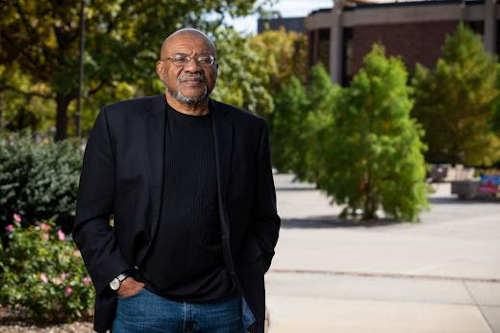- Kwame Dawes
- Posted On
American Life in Poetry: Mend

“Mend” is a poem of great intimacy. L. Renee, remembers her mother as the mender of garments, and as someone who had a life of rich experiences before the poet was born.
This moment of separation described in this poem is a testing and revelatory rite of passage for mother and daughter.
Her mother’s gift of precise hand-sewing is also a gift that mends whatever may seek to separate mother and daughter.
Mend
By L. Renee
My Mama had the gift of hand sewing—one perfect stitch
after another perfect stitch, eyeballing the precise length
of thread needed to repair what had ripped a gaping
hole, unmaking the whole swath of cotton-polyester fabric
she draped across her delicate boney shoulders before
a night out with my father—painting the town red
she said of those early dates when he handed her his fat
quarters hoping they would be enough to make something
beautiful like the outfits she sewed: plaid culottes with matching
vests, paisley dresses, fringed halters—she tells me this while
I watch the needle bully a ruby rivulet from her thumb, sullying
the myth of cotton without the blood, when she tries to mend
my middle-school uniform skirt, a navy pleat I never noticed
had been stretched into splitting—
American Life in Poetry does not accept unsolicited manuscripts. It is made possible by The Poetry Foundation, publisher of Poetry magazine. It is also supported by the Department of English at the University of Nebraska-Lincoln. Poem copyright ©2022 by L. Renée, “Mend” from Poetry Northwest. Poem reprinted by permission of the author and the publisher. Introduction copyright ©2022 by The Poetry Foundation. The introduction’s author, Kwame Dawes, is George W. Holmes Professor of English and Glenna Luschei Editor of Prairie Schooner at the University of Nebraska.







